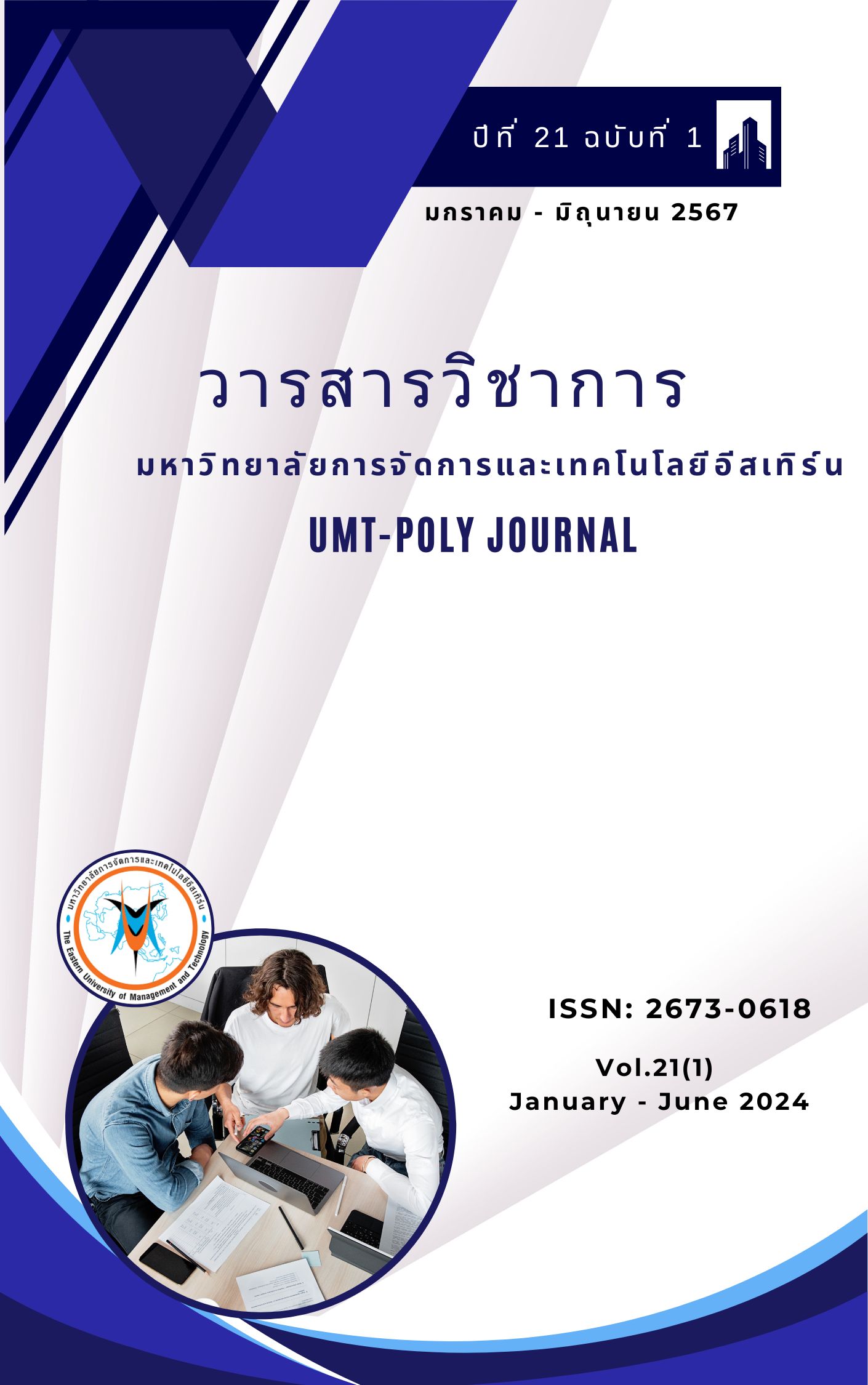THE IMPACT OF THE EUROPEAN GREEN DEAL ON THAILAND'S EXPORTS TO THE EU
คำสำคัญ:
European Green Deal, Carbon Border Adjustment Mechanism, Exporting country – Thailand, Iron and Steel industry in EU, Climate Policyบทคัดย่อ
This research investigates how the Carbon Border Adjustment Mechanism (CBAM) will impact Thailand's exports of steel and iron to the European Union (EU). The European Green Deal (EGD) is the European Commission's policy that aims to promote a green transition, along with the plan to make Europe the first continent to be climate neutral by 2050. This includes the sought-after Carbon Border Adjustment Mechanism (CBAM), which levies tariffs on carbon-importing goods to the EU. This research (1) evaluate how CBAM would affect Thailand's exports of steel and iron to the EU (2) explore the perceptions and preparedness of Thai export firms regarding CBAM (3) provide policy recommendations to mitigate adverse effects and leverage potential opportunities for Thailand. The study identifies concerns regarding cost rise and competitive loss based on semi-structured interviews with ten Thai export firms. The ten companies interviewed are located in various industrial regions of Thailand, including Bangkok, Samut Prakan, and Chonburi.
It has also indicated that Thai manufacturers should embrace environmentally friendly production practices to manage these impacts effectively. The study also suggests that Thai policymakers should ensure that the CBAM legislation is accompanied by viable instrumental and technical support to reduce the initial cost borne by iron and steel traders in Thailand. Exporters must embrace innovations and improve their energy systems so that their products remain relevant in the EU region. Legal specifications and adequate communication systems with exporting entities and EU institutions are essential in managing CBAM provisions to sustain access to the market. The findings from the interviews revealed that Thai firms are concerned about the increased costs and potential competitive disadvantages. The companies expressed the need for technical assistance and clear communication to mitigate these impacts.
Downloads
เอกสารอ้างอิง
Bäckstrand, K. (2022). Towards a Climate-Neutral Union by 2050? The European Green Deal, Climate Law, and Green Recovery. Routes to a Resilient European Union.
Cosbey, A., Mehling, M., & Marcu, A. (2021). CBAM for the EU: A Policy. Retrieved from
http://dx.doi.org/10.2139/ssrn.3838167
Jakhar, T. C. A. T. R. (2024). Beyond Borders: CBAM's Revolutionary Potential and Challenges in Achieving Carbon Neutrality. International Journal of Innovative Technology and Exploring Engineering, 13(4), 7-16.
Harik, R., El Hachem, W., Medini, K., & Bernard, A. (2015). Towards a Holistic Sustainability Index for Measuring Sustainability of Manufacturing Companies. International Journal of Production Research, 53.
Penman, S. (2012). Financial Statement Analysis and Security Valuation (5th ed.). New York: McGraw-Hill.
Magacho, G., Espagne, E., & Godin, A. (2024). Impacts of the CBAM on EU Trade Partners: Consequences for Developing Countries. Climate Policy, 24(2), 243-259.
Mehling, M., & Jakob, M. (2024). Subsidy-Related Aspects of the EU Carbon Border Adjustment Mechanism (CBAM). Journal of World Trade, 58(3), 361-386.
Perdana, S., & Vielle, M. (2022). Making the EU Carbon Border Adjustment Mechanism Acceptable and Climate Friendly for Least Developed Countries. Energy Policy, 170(1).
Sejdiu, E. (2023). Decarbonizing The World: Can The EU CBAM Provide the Incentive We Need? Energy Law Journal, 44(2), 219–250.
ดาวน์โหลด
เผยแพร่แล้ว
ฉบับ
ประเภทบทความ
สัญญาอนุญาต
ประกาศลิขสิทธิ์
เนื้อหาและข้อมูลในบทความที่ลงตีพิมพ์ในวารสารวิชาการมหาวิทยาลัยการจัดการและเทคโนโลยีอีสเทิร์น ถือเป็นข้อคิดเห็นและความรับผิดชอบของผู้เขียนบทความโดยตรง ซึ่งกองบรรณาธิการวารสารไม่จำเป็นต้องเห็นด้วยหรือร่วมรับผิดชอบใด ๆ
บทความ ข้อมูล เนื้อหาหรือรูปภาพ ฯลฯ ที่ได้รับการตีพิมพ์ในวารสารวิชาการมหาวิทยาลัยการจัดการและเทคโนโลยีอีสเทิร์น ถือเป็นลิขสิทธิ์ของวารสารวิชาการมหาวิทยาลัยการจัดการและเทคโนโลยีอีสเทิร์น หากบุคคลหรือหน่วยงานใดต้องการนำข้อมูลทั้งหมดหรือบางส่วนไปเผยแพร่ต่อหรือเพื่อกระทำการใด ๆ จะต้องได้รับอนุญาตเป็นลายลักษณ์อักษรจากวารสารวิชาการมหาวิทยาลัยการจัดการและเทคโนโลยีอีสเทิร์นก่อนเท่านั้น




